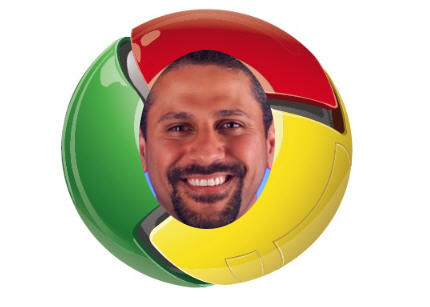
Walid Abu-Hadba, Microsoft’s Vice President of Developer and Platform Evangelism, has gone on record to say that “[m]ost of what Google does is defensive.” He has an interesting point: all of the non-search stuff that Google invests in keep its would-be competitors on their toes, and prevent those would-be competitors from encroaching upon the cash cow of Google’s operation: search.
I observed that Google’s not in the operating system business, so Chrome OS isn’t expected to be their bread-and-butter. It’s expected to be one mechanism (of many) to allow their bread to continue to be buttered by making the online experience better for the casual user. The less barriers there are to an enjoyable online experience, the more of a market Google can enjoy. All the fancy offline features of various Google products are ancillary benefits to a small segment of their userbase: the bulk of Google services and applications are intended to be used and enjoyed online. I’d wager that Google would be happy to drop Chrome OS development if Microsoft Windows presented a demonstrably superior online experience.
Abu-Hadba gets this. He recognizes that Chrome OS isn’t a direct threat to Microsoft’s cash cows, the Windows and Office product lines. Chrome OS may eventually be one part of a larger paradigm shift, and it may even be a major part of that shift, but it’s important to remember that this does not represent a significant change in Google’s strategy. They’re not abandoning their core services to become an operating system developer, any more than Microsoft is abandoning their core offerings to become a search provider.
The thing that interests me vis-à-vis Google and Microsoft is the manner in which each pursues these secondary, and in some cases tertiary, endeavours. I think we can all agree that Google makes some cool stuff, and then just floats it out there for people to use. They seem to focus on making products that are genuinely useful, and allowing the customers to figure that out on their own. Microsoft, on the other hand, sets out to compete in new product spaces, and aggressively works to market their stuff against the competition. Silverlight, anyone? I suspect, without having done any analysis at all, that this is one of the reasons why everyone is so quick to claim that Chrome OS is or is not a threat to Windows: because all of Microsoft’s products are intended to be a threat to some established player.
And I can’t pass on the irony of Microsoft calling anyone else’s products as “defensive”. What was the last truly original thing Microsoft created? I suppose a case could be made for Bing — I admit I haven’t looked at it at all yet, because it doesn’t really interest me.